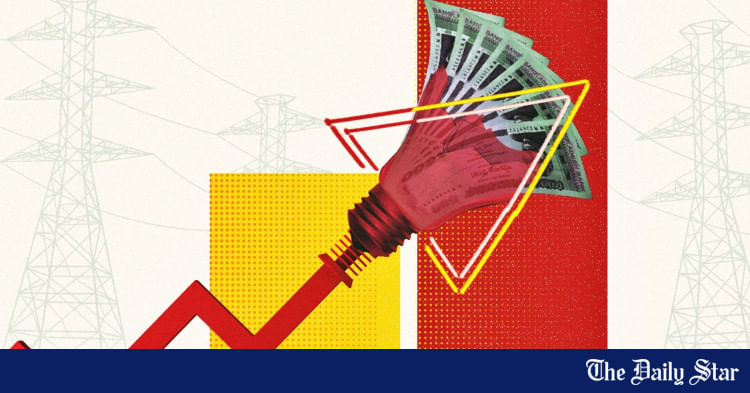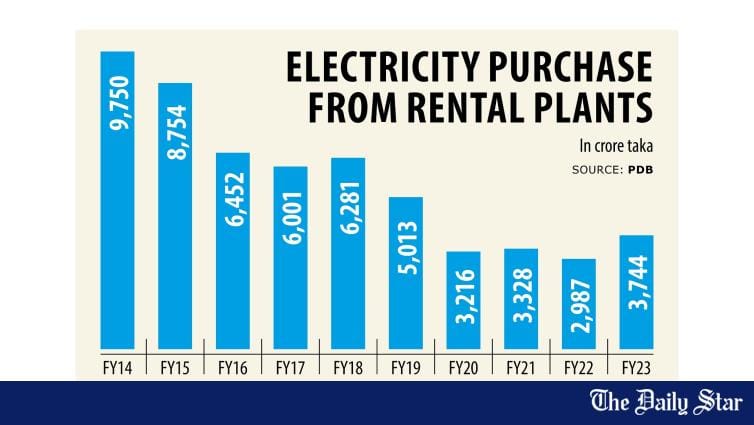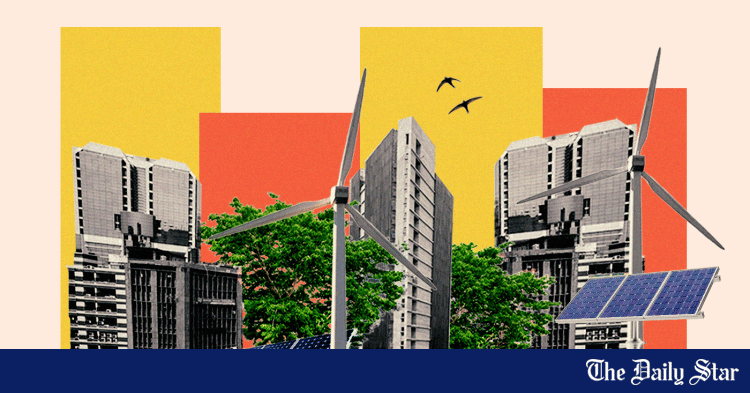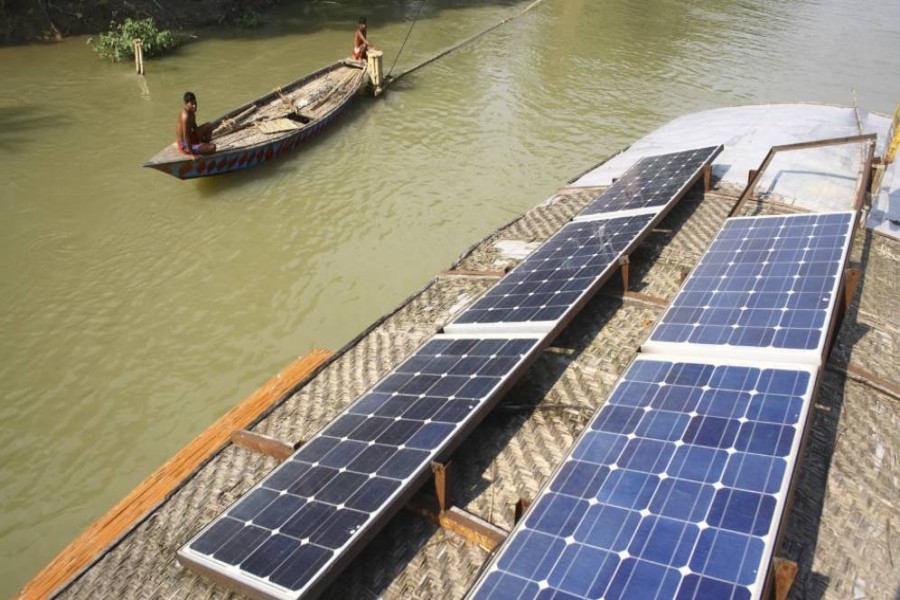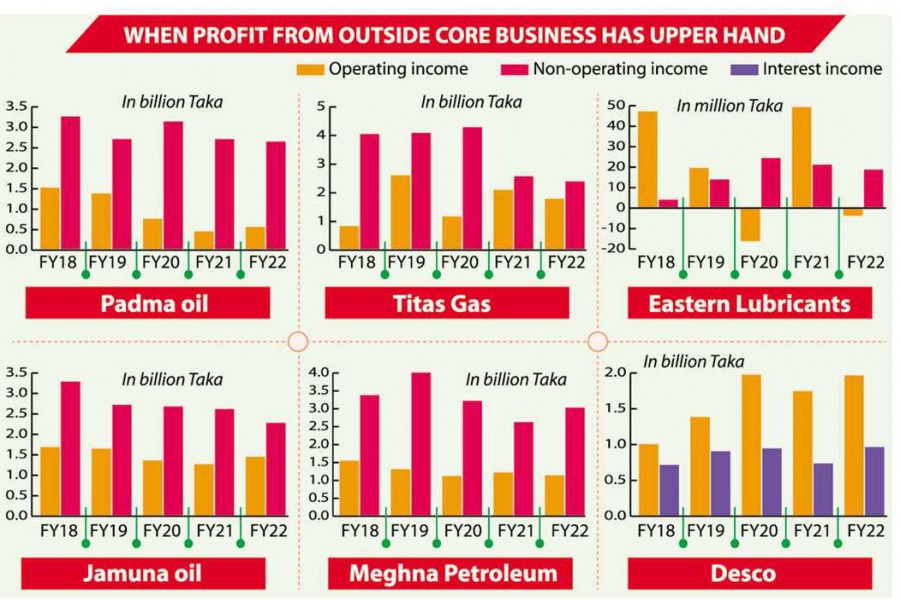- Copy to clipboard
- Thread starter
- #81
Saif
Senior Member
- Joined
- Jan 24, 2024
- Messages
- 15,397
- Reaction score
- 7,865
- Points
- 209
- Nation

- Residence

- Axis Group


IMF prescription to raise energy prices is anti-people, illogical
The IMF prescription for the public means increased gas, electricity and transport prices, and so on.
IMF prescription to raise energy prices is anti-people, illogical

VISUAL: SHAIKH SULTANA JAHAN BADHON
The International Monetary Fund (IMF) has just completed their recent mission in Bangladesh, during which they held various meetings and discussed the terms and conditions of the $4.7 billion loan, which they are set to give out in instalments. We have seen a set of preconditions emerging out of those discussions. Typically, there are two types of IMF conditions—and I say this from my observations and long-term research on IMF activities in developing countries. The first set of conditions relates to much-needed reforms to improve any economy, such as financial sector reform, tax-GDP ratio, ensuring accountability and transparency, etc. Then there is a second set of conditions, whose main objective is more privatisation and commercialisation. For the public, this means increased gas, electricity and transport prices, more taxes, and so on.
We have to treat these two conditions separately. If we do, we will notice that the IMF is not so serious about the first set of conditions—which are the bare minimum needed for an economy to function. They may talk about these much-needed reforms, but these are not their main agenda. Their priority is to institute the second set of reforms. The IMF has already given out loans to Bangladesh 10 times before, but has there been any improvement in the financial sector? In fact, there has been an alarming degradation of the sector—Bangladesh has now become an example of how a financial sector can become a place of unprecedented and unapologetic looting. But since the 1990s, the IMF and World Bank have brought about many reforms in public banks. The space and scope for private banks have been increased. They have done these in the name of reform in the financial sector, but we have not seen any overall improvement.
It has been the same in the case of corruption in private and public sectors. In the name of increasing the tax-GDP ratio, they have imposed various taxes on the people, but those in whose hands wealth has been centralised have not been brought under the tax regime. It is now universally acknowledged that inequality has increased exponentially in Bangladesh. It is because a large amount of wealth has accumulated in the hands of a few people within a very short amount of time, thanks to large-scale looting in the finance or energy sector, occupation and destruction of our rivers and forests, and different construction projects undertaken at the highest costs. But those who have benefitted from this corruption are not being taxed, even though it is because of them that the country's GDP has increased. So while there is a need to increase the tax-GDP ratio, the burden is ultimately falling upon the ordinary people. New taxes are being imposed on them at different times of the year, even though such decisions are supposed to be made as per the national budget.
The IMF's position is clearly to protect corporate interests and against public interest. If they were concerned with public interest, they would have asked why subsidies are so high, instead of asking to reduce them in the energy sector. Why are subsidies so high? Even though our installed capacity is more than our current need, the government has given one private power plant after another permission to set up, and now are paying them an absurd amount of money to simply sit idle—as much as 81 percent of the subsidies in the energy sector is spent paying capacity charges. Another reason is that, instead of investing time and money in gas exploration, our government has opted for expensive LNG imports. So now we are having to spend Tk 30,000-40,000 crore in importing LNG to get what we could have gotten by spending Tk 400 crore in gas exploration. As a result, subsidies are increasing in the gas sector.
Similarly, instead of investing in renewables, they are setting up import-based coal power plants. Nuclear power plant is being built with huge loans. If the reasons due to which subsidies are so high remain unaddressed, the process of withdrawing subsidies would only mean that instead of solving the energy crisis, the burden of increased energy costs will fall on the general public. Simply put, in order to expand the businesses of some private groups in Bangladesh, Russia, China, US, India, etc, our electricity production costs are increasing. This is what the government wants and also what broader corporate groups want. But, as always, it is the people who must bear the burden.
Instead of addressing the pressing concerns of the energy sector, raising prices is an anti-people and anti-development position. Unfortunately, that is what the IMF consistently does. It is not truly invested in institutional reforms. They gave out loans to Sri Lanka many times, yet it fell into a crisis. Pakistan has taken out loans 22 times, but we all know the state of its economy. So it is important to question the conditions, frameworks and prescriptions recommended by the IMF and World Bank, and hold them accountable. It is time to ask what the results are of the various projects and prescriptions of these organisations. The ruling class in Bangladesh are certainly to blame for the chaotic situation in the railway, education, health and energy sectors, but I also hold the IMF and World Bank responsible for enabling them. It is time we asked whose interests are being served ultimately by the various projects and prescriptions of these international institutions.
As told to Sushmita S Preetha of The Daily Star.
Anu Muhammad is a former professor of economics at Jahangirnagar University.
VISUAL: SHAIKH SULTANA JAHAN BADHON
The International Monetary Fund (IMF) has just completed their recent mission in Bangladesh, during which they held various meetings and discussed the terms and conditions of the $4.7 billion loan, which they are set to give out in instalments. We have seen a set of preconditions emerging out of those discussions. Typically, there are two types of IMF conditions—and I say this from my observations and long-term research on IMF activities in developing countries. The first set of conditions relates to much-needed reforms to improve any economy, such as financial sector reform, tax-GDP ratio, ensuring accountability and transparency, etc. Then there is a second set of conditions, whose main objective is more privatisation and commercialisation. For the public, this means increased gas, electricity and transport prices, more taxes, and so on.
We have to treat these two conditions separately. If we do, we will notice that the IMF is not so serious about the first set of conditions—which are the bare minimum needed for an economy to function. They may talk about these much-needed reforms, but these are not their main agenda. Their priority is to institute the second set of reforms. The IMF has already given out loans to Bangladesh 10 times before, but has there been any improvement in the financial sector? In fact, there has been an alarming degradation of the sector—Bangladesh has now become an example of how a financial sector can become a place of unprecedented and unapologetic looting. But since the 1990s, the IMF and World Bank have brought about many reforms in public banks. The space and scope for private banks have been increased. They have done these in the name of reform in the financial sector, but we have not seen any overall improvement.
It has been the same in the case of corruption in private and public sectors. In the name of increasing the tax-GDP ratio, they have imposed various taxes on the people, but those in whose hands wealth has been centralised have not been brought under the tax regime. It is now universally acknowledged that inequality has increased exponentially in Bangladesh. It is because a large amount of wealth has accumulated in the hands of a few people within a very short amount of time, thanks to large-scale looting in the finance or energy sector, occupation and destruction of our rivers and forests, and different construction projects undertaken at the highest costs. But those who have benefitted from this corruption are not being taxed, even though it is because of them that the country's GDP has increased. So while there is a need to increase the tax-GDP ratio, the burden is ultimately falling upon the ordinary people. New taxes are being imposed on them at different times of the year, even though such decisions are supposed to be made as per the national budget.
The IMF's position is clearly to protect corporate interests and against public interest. If they were concerned with public interest, they would have asked why subsidies are so high, instead of asking to reduce them in the energy sector. Why are subsidies so high? Even though our installed capacity is more than our current need, the government has given one private power plant after another permission to set up, and now are paying them an absurd amount of money to simply sit idle—as much as 81 percent of the subsidies in the energy sector is spent paying capacity charges. Another reason is that, instead of investing time and money in gas exploration, our government has opted for expensive LNG imports. So now we are having to spend Tk 30,000-40,000 crore in importing LNG to get what we could have gotten by spending Tk 400 crore in gas exploration. As a result, subsidies are increasing in the gas sector.
Similarly, instead of investing in renewables, they are setting up import-based coal power plants. Nuclear power plant is being built with huge loans. If the reasons due to which subsidies are so high remain unaddressed, the process of withdrawing subsidies would only mean that instead of solving the energy crisis, the burden of increased energy costs will fall on the general public. Simply put, in order to expand the businesses of some private groups in Bangladesh, Russia, China, US, India, etc, our electricity production costs are increasing. This is what the government wants and also what broader corporate groups want. But, as always, it is the people who must bear the burden.
Instead of addressing the pressing concerns of the energy sector, raising prices is an anti-people and anti-development position. Unfortunately, that is what the IMF consistently does. It is not truly invested in institutional reforms. They gave out loans to Sri Lanka many times, yet it fell into a crisis. Pakistan has taken out loans 22 times, but we all know the state of its economy. So it is important to question the conditions, frameworks and prescriptions recommended by the IMF and World Bank, and hold them accountable. It is time to ask what the results are of the various projects and prescriptions of these organisations. The ruling class in Bangladesh are certainly to blame for the chaotic situation in the railway, education, health and energy sectors, but I also hold the IMF and World Bank responsible for enabling them. It is time we asked whose interests are being served ultimately by the various projects and prescriptions of these international institutions.
As told to Sushmita S Preetha of The Daily Star.
Anu Muhammad is a former professor of economics at Jahangirnagar University.



